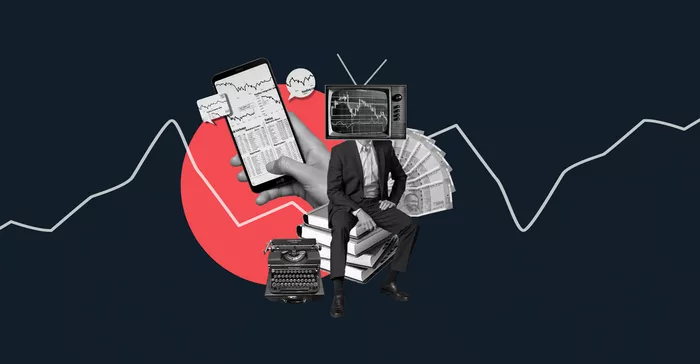BP, one of the world’s largest oil and gas companies, has experienced fluctuations in its share price over the years. A decline in BP’s share price can be concerning for investors, especially those relying on it for long-term returns. Understanding the reasons behind such drops can provide insight into market dynamics and help investors make informed decisions.
Introduction to BP and Its Market Performance
A Global Energy Leader
BP is a multinational energy company with operations in oil, gas, and renewable energy. As a key player in the energy sector, BP’s performance is closely linked to global energy trends.
Share Price Volatility
BP’s stock price is subject to external and internal factors. While the company has shown resilience over time, periods of decline can stem from specific events or broader market conditions.
Factors Contributing to BP’s Share Price Decline
Fluctuations in Oil Prices
Oil prices play a crucial role in determining the profitability of energy companies like BP. A drop in oil prices can significantly impact BP’s revenue and investor confidence.
Impact of Oversupply: When global oil production exceeds demand, prices tend to fall. This oversupply can hurt BP’s profit margins, leading to a decline in its share price.
Geopolitical Tensions: Political unrest or changes in oil-exporting countries can disrupt supply chains, creating price instability and affecting BP’s valuation.
Economic Slowdowns
Economic downturns or recessions reduce global energy demand. Industries consume less oil and gas during such times, which negatively affects companies like BP.
COVID-19 Pandemic Effects: The global pandemic in 2020 caused a massive drop in energy demand. BP’s operations were heavily impacted, leading to a decrease in its share price.
Rising Interest Rates: Higher interest rates can slow economic growth and dampen investor sentiment toward cyclical industries like energy.
Transition to Renewable Energy
The global shift toward renewable energy is reshaping the energy industry. While BP has committed to investing in clean energy, the transition comes with challenges.
Increased Competition: Renewable energy companies are gaining traction, creating competition for traditional oil and gas firms like BP.
Investor Sentiment: Some investors may shift their portfolios away from fossil fuel-based companies, contributing to a decline in BP’s share price.
Regulatory and Environmental Challenges
Stringent environmental regulations and policies can increase operational costs for BP.
Carbon Emission Targets: Governments worldwide are implementing stricter policies to reduce greenhouse gas emissions. BP must invest heavily to meet these targets, which can strain its finances.
Lawsuits and Fines: Environmental disasters or violations can lead to costly penalties. The Deepwater Horizon oil spill in 2010 is a notable example that significantly affected BP’s stock price.
Earnings and Dividend Cuts
BP’s financial health directly impacts its share price. Poor earnings reports or reduced dividends can erode investor confidence.
Low Profit Margins: If BP reports lower-than-expected earnings, it can result in a sell-off of shares.
Dividend Reductions: Investors who rely on dividends may lose interest in BP’s stock if the company reduces its payouts.
Geopolitical and Supply Chain Risks
Global tensions, trade wars, and disruptions in supply chains can hinder BP’s operations. These risks can create uncertainty, leading to lower stock valuations.
Recent Examples of BP Share Price Declines
Oil Price Wars
The oil price war between Saudi Arabia and Russia in 2020 caused a sharp drop in oil prices. This directly impacted BP’s revenue, resulting in a significant decline in its share price.
Renewable Energy Announcements
While BP’s investments in renewable energy are forward-thinking, initial announcements often cause concern among investors about the costs and timeline of such transitions.
Macroeconomic Events
Events like inflation, rising interest rates, and global conflicts have created uncertainty in financial markets. Energy stocks, including BP, have not been immune to these pressures.
How Does BP Respond to Share Price Drops?
Cost-Cutting Measures
BP often implements cost-cutting strategies during downturns to maintain profitability. These measures may include reducing capital expenditures or workforce restructuring.
Diversification
To reduce dependency on oil and gas, BP has been investing in renewable energy projects such as wind and solar power. These efforts aim to align the company with global energy trends and attract environmentally conscious investors.
Share Buybacks
BP sometimes engages in share buybacks to support its stock price. By reducing the number of shares in circulation, the company can boost earnings per share and investor confidence.
What Can Investors Do?
Monitor Oil Market Trends
Investors should keep an eye on global oil price trends, as they have a direct impact on BP’s performance.
Evaluate Long-Term Prospects
While short-term fluctuations can be unsettling, BP’s long-term strategy of transitioning to renewable energy may offer growth potential.
Diversify Portfolios
To mitigate risks, investors should diversify their portfolios by including a mix of energy stocks, renewable investments, and other sectors.
Conclusion
The decline in BP’s share price can be attributed to a combination of factors, including fluctuating oil prices, economic conditions, regulatory challenges, and the transition to renewable energy. While these challenges pose risks, BP’s commitment to adapting and diversifying its operations provides hope for long-term recovery and growth.
Investors must stay informed, evaluate market conditions, and assess BP’s strategies to make sound investment decisions. By understanding the reasons behind share price drops, you can better navigate the complexities of investing in the energy sector.
Related topics:
How Do Hedge Fund Managers Make Money


